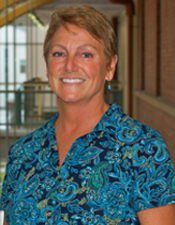
Luke LaRosa, a senior at UConn, was recently awarded a Honorable Mention for Aetna Writing in the Disciplines Award for his paper titled “Selling Downtown North: Place Branding, Citizen Involvement, and the Creation of a Neighborhood”
“Selling Downtown North: Place Branding, Citizen Involvement, and the Creation of a Neighborhood” discussed branding and how it is seen in literature, citizen involvement, and what the future development of Downtown North Hartford holds.
“The goal of the paper was to create a vocabulary to talk about place branding. In most literature, it’s from the top down, there is a brand that developers want to sell, and there is a particular brand to attract clients,” LaRosa states, “This paper complicates that idea because you take account of citizen action and the complexity it takes to change a place brand.”
LaRosa, a geography and urban and community studies major, was initially interested in researching brand and urban development through his passion for the type branding that is seen with each place. “I’ve always been fascinated by how people understand a place, like Storrs Center, there is a certain brand that comes along with it. It’s all subtle ways how people form impressions of places,” he says.
The research and study of Downtown North Hartford was done through a service learning course offered at the University, Geographic Analysis for Urban and Social Issues, taught by Professor Carol Atkinson-Palombo. The first portion of the class focused on students learning geographical theory and issues such as policy development and implementation, racial segregation and neoliberalism, which included readings such as: “Cultural Development Strategies and Urban Revitalization” by Carl Grodach & Anastasia Loukaitou‐Sideris and “Black In-Migration, White Flight, and the Changing Economic Base of the Central City” by William H. Frey. The second half of the course allowed students to select a topic of interest in relation to the course and conduct ethnographic studies on Downtown North and surrounding neighborhoods in Hartford.
“Seldom do you get the opportunity to apply theory to a relevant case study example that is close to home. It’s one thing to learn about civic participation, it’s another to directly engage with a community that is going to be affected by it,” LaRosa says.
Students had the opportunity to present their research to the City of Hartford Division of Economic Development and Division of Planning. Through service learning, students were also able to see how course theory connected with the residents of Hartford and allowed to receive real feedback from them. “As someone with an interest in planning and geography, this also helped inform me what I want to do after my undergraduate years,” LaRosa mentioned.
 LaRosa has also worked closely with the Office of Public Engagement, developing a Tableau charting of UConn community engagement throughout the state of Connecticut. “He established mapping possibilities for faculty and student projects; this will facilitate communication with internal and external stakeholders as visuals often speak louder than words” says Dr. Polifroni, Director of Engagement for the Office of Public Engagement.
LaRosa has also worked closely with the Office of Public Engagement, developing a Tableau charting of UConn community engagement throughout the state of Connecticut. “He established mapping possibilities for faculty and student projects; this will facilitate communication with internal and external stakeholders as visuals often speak louder than words” says Dr. Polifroni, Director of Engagement for the Office of Public Engagement.
LaRosa accepted his award on October 22nd at the Co-Op in Storrs center.

 The UConn Office of Public Engagement is excited to be hosting our first Alumni Event for students who were involved with community engagement or service learning courses while at UConn.
The UConn Office of Public Engagement is excited to be hosting our first Alumni Event for students who were involved with community engagement or service learning courses while at UConn. experiential learning and come away with knowledge to help solve today’s most pressing societal issues. This year’s cohort has ten members from across the University: Agriculture and Resource Economics (2), Physiology and Neurobiology, Neag School of Education (2), Urban and Community Studies, Political Science, Chemical and Biomolecular Engineering, Economics, and Community Medicine and Health Care. Faculty projects will involve criminal justice, rare diseases, air pollution, food policy, education power and privilege, community medicine and access to healthcare, and urban geographical analysis.
experiential learning and come away with knowledge to help solve today’s most pressing societal issues. This year’s cohort has ten members from across the University: Agriculture and Resource Economics (2), Physiology and Neurobiology, Neag School of Education (2), Urban and Community Studies, Political Science, Chemical and Biomolecular Engineering, Economics, and Community Medicine and Health Care. Faculty projects will involve criminal justice, rare diseases, air pollution, food policy, education power and privilege, community medicine and access to healthcare, and urban geographical analysis. Do you want your students to help solve this century’s most pressing societal challenges? Do you have an interest in community inspired research initiatives? The Office of Public Engagement in collaboration with the Institute for Teaching and Learning are offering a sequential learning series on the pedagogy of Service Learning.
Do you want your students to help solve this century’s most pressing societal challenges? Do you have an interest in community inspired research initiatives? The Office of Public Engagement in collaboration with the Institute for Teaching and Learning are offering a sequential learning series on the pedagogy of Service Learning.